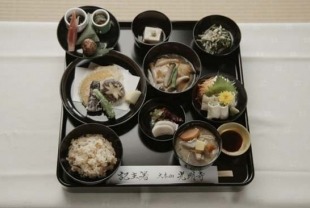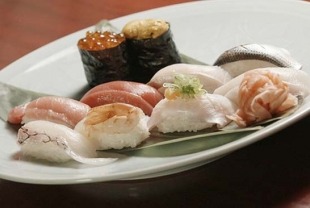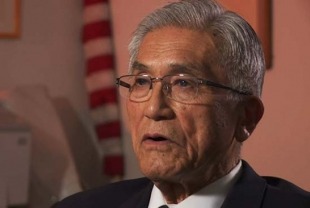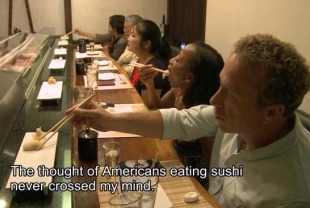Wa-shoku, Japan's traditional dietary culture, is becoming more popular in the United States as people are more inclined toward healthy food with low calories. This documentary begins with a profile of the physically fit 91-year-old food importer Noritoshi Kanai who is called "the missionary of Japanese food" for introducing Americans to this cuisine in 1964.
In a very elegant section of the film, we learn about wa-shoku and its connections with the ancient tea ceremony. One of its most interesting aspects is all the attention given to small details such as the presentation of the food, the use of certain bowls and dishes according to the season of the year, and the room decorations. This Zen quality is totally related to Japanese culture.
It is a strange journey from such Zen attention and silence to the sushi bars in American cities where sake lifts the energy and spirits of customers who shout and scream as they relax with friends. At this point in the documentary director Junichi Suzuki loses control of the material, and we feel like we have crossed the street to a Swedish smorgasbord.
Among the many topics covered are the efforts of traditionalists to keep using eels in their dishes, the many chefs in the United States who have jazzed up wa-shoku in order to keep their customers happy. the idea that it takes 10 years for a sushi chef to hit high stride, the flavor of umami, a contest between students aspiring to be sushi chefs, and tours of a variety of restaurants with chefs talking about the things on the menus that make their establishments special.



